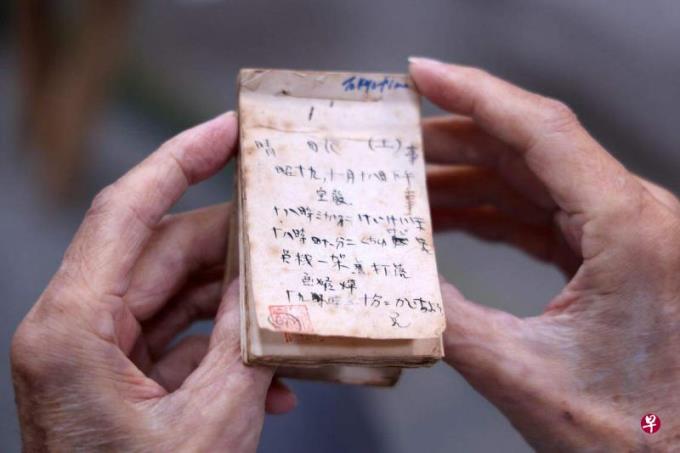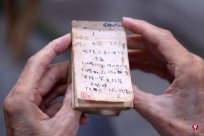
The first time I saw Mr. Chen Jiachang, it was February last year.Unfortunately, that's the last time I saw him.
Although it is a relationship, after receiving the news that the old newspaper died on Wednesday (June 21), I couldn't help thinking of the scene where he went to the newspaper to participate in the interview last year and told his experience in World War II.At that time, in order to make the explanation more vivid, he brought the collection of newspapers, photos, and his own little boys that had been collected over the years, and added a lot of color to the interviews.
For the Japanese occupation period, Mr. Chen proposed a more different view of mainstream cognition, referring to the war of other places, and the Japanese occupation period was relatively "stable and based on rules".This conclusion is more difficult to swallow, or even those who have lost their loved ones during the Japanese occupation or a relative in the hands of the Japanese army, and may even be like "painting history."Chen Lao must have heard such a voice that he also laughed at many people who said that he was a "traitor", but he believed that from the perspective of historical research, his conclusions could stand on his feet.
Of course, the general public's perception of the Japanese occupation period is a large -scale killing of the Japanese army through the large -scale inspection certificates and the "cleared" operation.However, Mr. Chen's experience of his period, as well as the work of the reporters in the battlefield and the frontline of the overseas battlefield, and considers the people's cognition and drawn his own summary.
The purpose of reviewing history is not to determine the right or wrong.Rarely, through the narrative of Mr. Chen, we heard another view of this history.Even if this view does not necessarily reflect the idea of the same generation, as a person born in that era, Mr. Chen's point of view comes with real and reference value.No matter what kind of experience and conclusions are, it is a witness and record of a era.As the old generations who have experienced the period of war and the years of turbulence in the early years of the founding of the People's Republic of China died one after another, the memory they could stay in the world would be more precious, and it also helped the next generation a more comprehensive understanding of what happened on this land.
The emphasis on history and cognition of history is precisely essential in the growth process of the younger generation.It does not mean that everyone has to read ancient and modern, because after all, people have their own ambitions.However, if a certain historical cognition is formed to form a historical outlook, people can make people look longer and have a greater pattern.It is just that in the interesting street visit video about Singapore's history on weekdays, young students have a half -knowledge of Singapore's history, important date and characters in Singapore, and they are really worried.
Looking back at the interview of Mr. Chen, the college students who communicated with him in the interview talked about she did not have much negative observation of Japan, and she believed that the killing during the Japanese occupation period was already the previous generation.Similarly, different generations will have different views on such evaluations. Some people may think that this shows that the younger generation is too light to see this period of history. Others think that the experience of the younger generation is different.Suffering during the war.
But at the same time, it is worth noting that this college student is very willing to come out. The years of war catalyzed the consciousness of the Singaporeans themselves as the master, and it is an important history for Singapore to independence.The conclusion that can be reached, in fact, it also shows that the younger generation has no own reflection and deep interpretation of this history.This is also an indispensable way for each generation to understand the relationship between themselves and the times, and seeking the road to find a life.
Each generation has the experience of each generation, and even among the same generation, the experience is not necessarily the same.With different experiences, it is difficult to require the same standards to require people from different generations to have the same view in one thing, but this does not mean that different experiences must be conflicted with each other.On the contrary, different experiences provide opportunities for mutual understanding and widening cognition of the world.
But to do this, we must have sufficient awareness of history.Knowing history is not to "use yesterday's things to find answers for tomorrow", but to let yourself pass more from contact, so that when you find answers for tomorrow, you look farther and stand on your footsteps.




